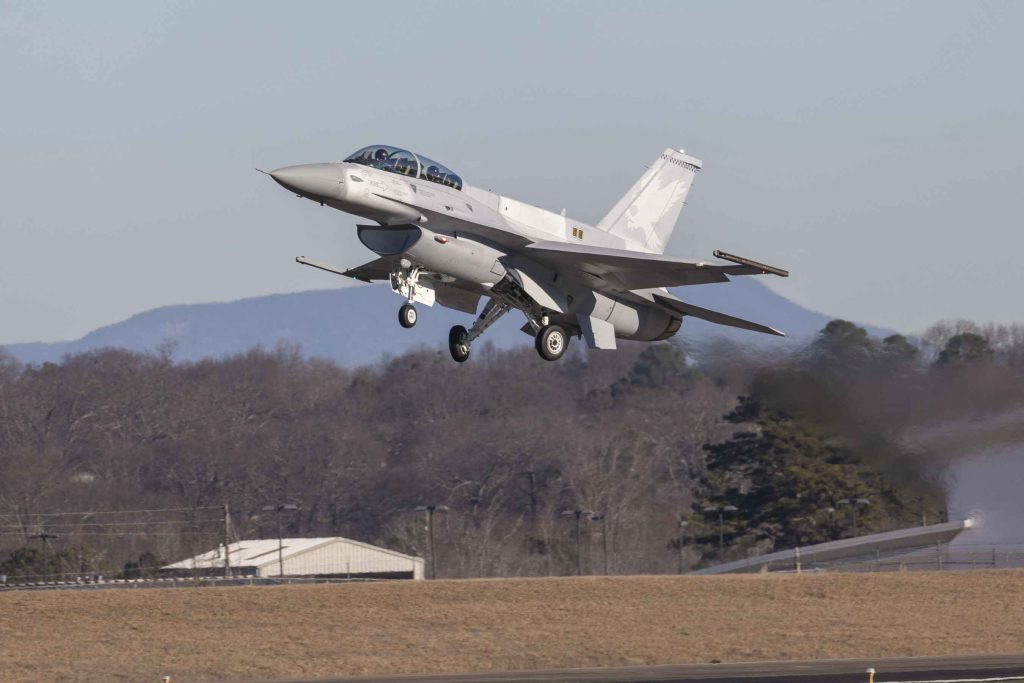Successful First Flight of F-16 Block 70 Announced by Lockheed Martin
At its facility in Greenville, South Carolina, Lockheed Martin declared the F-16 Block 70’s first flight to have been a success.
Lockheed Martin test pilots Dwayne “Pro” Opella and Monessa “Siren” Balzhiser took control of the aircraft on January 24 at 9:17 a.m. ET. There were many airworthiness tests throughout the roughly 50-minute flight, including basic aircraft handling and engine, flight control, and fuel system inspections.
The F-16 program’s vice president, OJ Sanchez, stated, “Today’s successful flight is a testament of the hard work, devotion, and commitment to our customers and their missions.
This accomplishment shows Lockheed Martin’s dedication to moving this project forward and providing the warfighter with this desperately needed aircraft and its cutting-edge 21st Century Security capabilities.

The first of 16 F-16 Block 70 aircraft to be delivered to Bahrain is this one. Block 70/72 aircraft have been selected by six nations. In addition to the 128 planes that have officially been backlogged for construction in Greenville, Jordan signed a Letter of Offer and Acceptance (LOA) for eight jets last year and another LOA for four more last week. Jordan’s long-lead operations will be started by Lockheed Martin. Additionally, Bulgaria has signed an LOA to add eight more aircraft to its inventory. After they are finished, there will be 148 items in the backlog.
“Lockheed Martin is fully committed to delivering quality platforms for our customers’ critical missions, and I am so proud of our talented team in Greenville,” said Danya Trent, F-16 Vice President and Site Lead in Greenville. “This is the culmination of significant development, design, digital engineering, supply chain, and production line advances to an already proven platform that will continue to deliver decades of service in support of customers’ national security.”
For many clients across the world looking for cutting-edge, 4th generation fighter aircraft capabilities, regional and global collaborations, and economical lifecycle costs, the F-16 is an useful and strategic option. Today, 25 countries are home to more than 3,000 F-16s. At least 13 million sorties and 19.5 million flying hours have been logged by the F-16. The most recent model, the Block 70/72, boasts unmatched capabilities and will be used by at least five nations starting in the middle of the 2020s.









